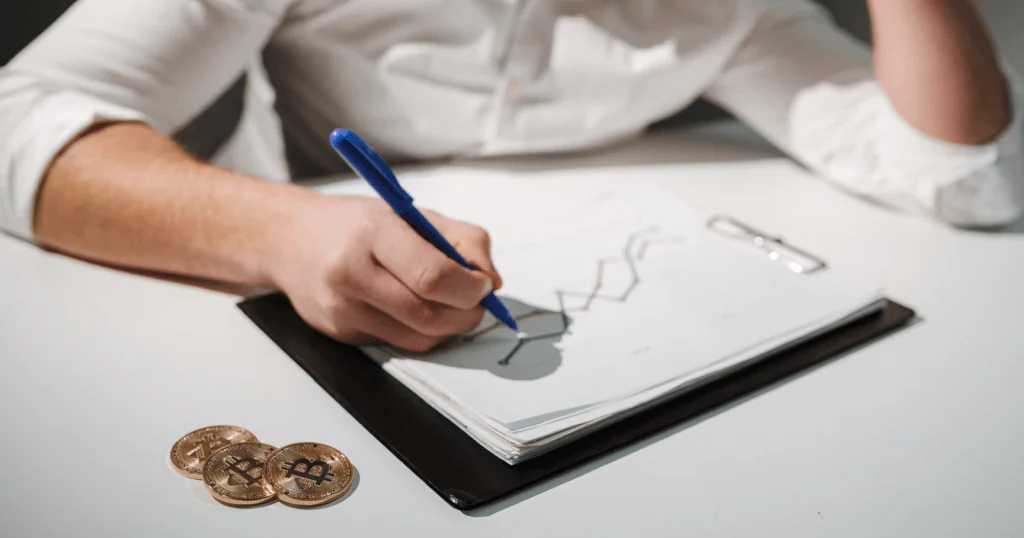What if there was another way to get what you want from any place in the world?
Imagine, you find the desired item, strike up an agreement with a seller and just get the item from the post office. Of course, the smart contract is valid only when both parties comply with its conditions. So first you need to bring in the cryptocurrency into the smart contract. But it’s not as usual when money goes straight to the seller’s wallet and you just wonder whether you’ll receive the product or it will turn out to be a scam. Smart contract manages this money according to the rules described in advance. Of course, you need to be prepared before you sign such contract. The seller, the buyer, and even the smart contract have their own digital wallet.
Cryptocurrency is used directly between wallets.
So the buyer has to take care of the wallet contents in advance. For example, cryptocurrency can be mined or bought on the online currency exchange platform.
You say it’s some kind of ghastly future. Well, the future is now. Similar contracts are already in action.
What’s in charge of such transactions? Blockchain is the technology that smart contracts are based on.
Blockchain popularity grows every day. A huge number of articles is already written about it. 1,703 discussions in Stackoverflow and thousands of questions on Quora contain the word “blockchain”. Here is how Google Trends show the dynamics of blockchain topic popularity.

But tell me the truth, do you really understand what’s all the fuss about? They say it’s the future, no hacker can beat it. Let’s figure out what the future holds.
Leave the page immediately! Otherwise, at the end of this article, you’ll know the whole truth about this breakthrough technology — from the concept of blockchain till the vision of your app based on this technology.
Simply about this bright technology, the already existing blockchain platforms and the areas experiencing its benefits at the moment. And a little bit about practice — the stages involved in the whole creation process and all those great benefits that blockchain brings us. Honestly about blockchain developers. Interested? Ready, steady, go!
Step 1. Meet Blockchain
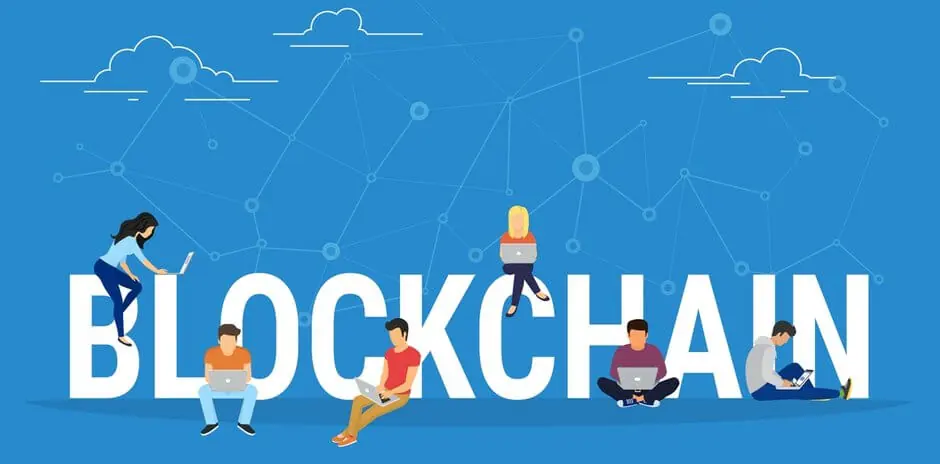
Blockchain is designed to make transactions safe and reliable even if the people doing them don’t trust each other.
In 2008 the world was introduced to a new concept that many believe will revolutionize the whole society. That’s the year when Bitcoin was invented — the first blockchain platform. More about it later. Now it’s vital to define the term.
There are various definitions of blockchain. Here is the most common. Blockchain at its core is a peer-to-peer distributed ledger that is cryptographically secure, append-only, immutable (extremely hard to change), and updateable only via consensus or agreement among peers. Put simply, it is arranged in data batches called blocks that reference and identify previous blocks by a hashing function, forming an unbroken chain, hence the name. No one owns this database, so cheating the system by faking documents, transactions and other information is nearly impossible.
Cryptographic security is provided by the fact that electronic digital signature signs all transactions and while blockchain is running, the data entered into it can not be changed — you won’t have enough computing power.
The data is not encrypted.
That’s just basics. Let’s see what features blockchain is ready to provide.
Step 2. Know the Blockchain Features

Various functions are available in blockchain. They define it out of all other competitors. Knowing the strong sides of technology allows you to stand out in a crowd.
Distributed agreement
The distributed consensus is the major feature of a blockchain. No single authority is in charge of the database. This enables a blockchain to present a single version of the truth that is agreed upon by all parties. For example, now you need banks to process your financial transactions. With blockchain, you don’t need them anymore. What luck!
Transaction verification
Only verified transactions are selected for inclusion in a block. Verification is done by a predetermined set of rules. Security in everything!
Uniqueness
Every transaction is unique. No duplicates are allowed, especially in cryptocurrencies. Never encountered lots of duplicated info while googling? That’s how it can be solved!
Value transfer
Tokens carry value from one user to another. Only valuable info is allowed!
Security
Cryptography means everything. Financial institutions and other industries need privacy and confidentiality of transactions. It could be argued that in many situations confidentiality is not really needed and transparency is preferred instead. For example, in bitcoin confidentiality is not really required; however, it is desirable in some scenarios. Data privacy in the blockchain can be provided only by external means. The blockchain itself is public.
Cryptocurrency
Blockchain can generate cryptocurrency as an incentive to its miners who validate the transactions and spend resources in order to secure the blockchain. But this is a whole other story.
Immutability
Оnce you add records onto the blockchain, they can’t be changed. There is the possibility of rolling back the changes but this is considered almost impossible to do as it will require an unaffordable amount of computing resources. So you need to be careful when you add information into it.
Platforms for smart contracts
Blockchain is a technology that some platforms are based on. Programs can run on such platforms as Bitcoin, Ethereum, etc.
Smart property
You are in full control of your assets and they cannot be spent twice or owned twice. Well, truth be told, theoretically, there is such an opportunity. This is due to the possible branching of the blocks. There is a mechanism that regulates the issue. But it is an open question whether it works in 100% cases or only in 99,9%.
One more thing, any value can be owned only by one wallet. Including the smart contract wallet. A contract can be managed by several people. Thus, through a smart contract, you can share your property.
For example, a digital music file, now can be copied many times without any control; on a blockchain, however, you can implement a scheme for transferring rights of use. And, if necessary, you can limit the time. That is, when you find a file with music, you can check whether you have the right to own a copy or not. Anyway, copyrights remain with their owner. If the author does not give them to anyone.
Smart contracts
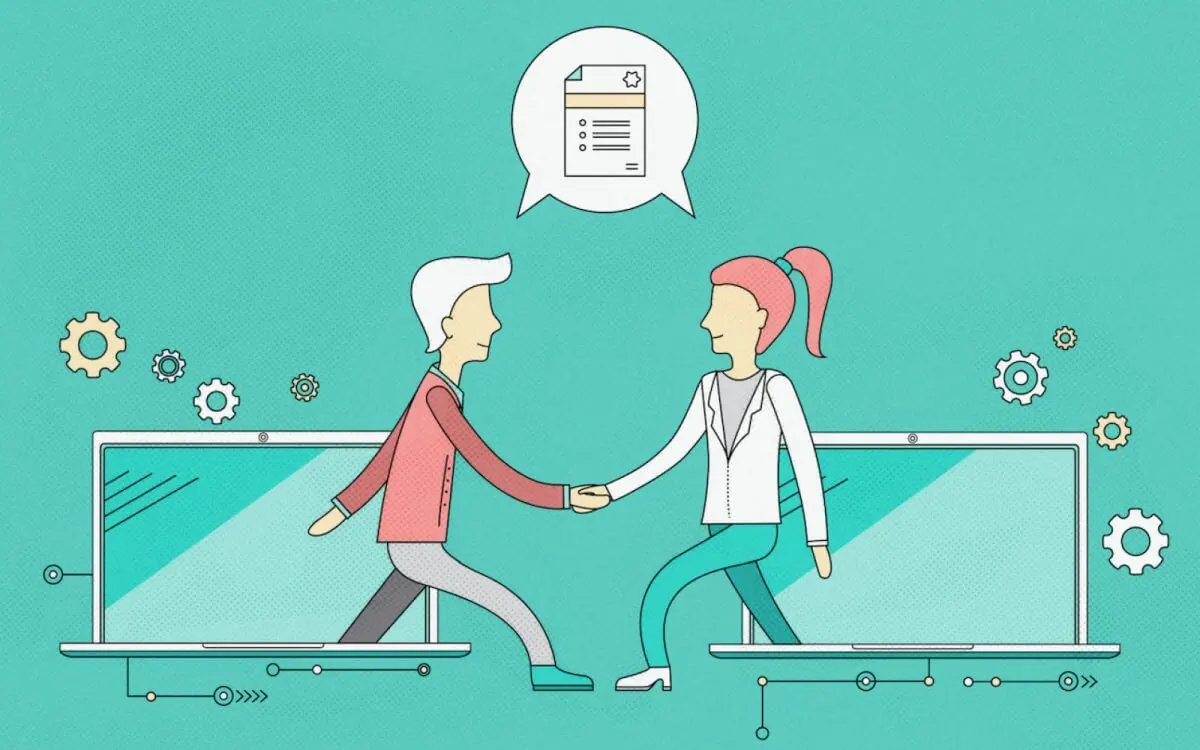
Smart contracts are automated autonomous programs that reside on the blockchain and encapsulate business logic and code in order to execute a required function when certain conditions are met. That’s the desired future for all, but now it’s only for the jet set. Such contracts allow flexibility, programmability, and much desirable control of actions that users of blockchain need to perform according to their specific business requirements.
Check our example of smart contracts on our Github. This is an example of placing the offers and selling some values (tokens) in the market at a certain price.
Step 3. Choose the Brightest Blockchain Platform
If you google about blockchain you would see a long list of different platforms that allow you to create unique apps with lots of benefits. But only two of them you must have heard about. Wanna check?
But first, let’s figure out why do we need these platforms. Decentralized applications run on top of a blockchain in a peer-to-peer network. They are software programs that can run on their own blockchain, use another already existing established blockchain, or use only protocols of an existing blockchain solution. Put simply, with already existing platforms you don’t need to create your own blockchain, all you need is to create your own application that will run on top of the platform. Well, it not so hard as it sounds!
Bitcoin
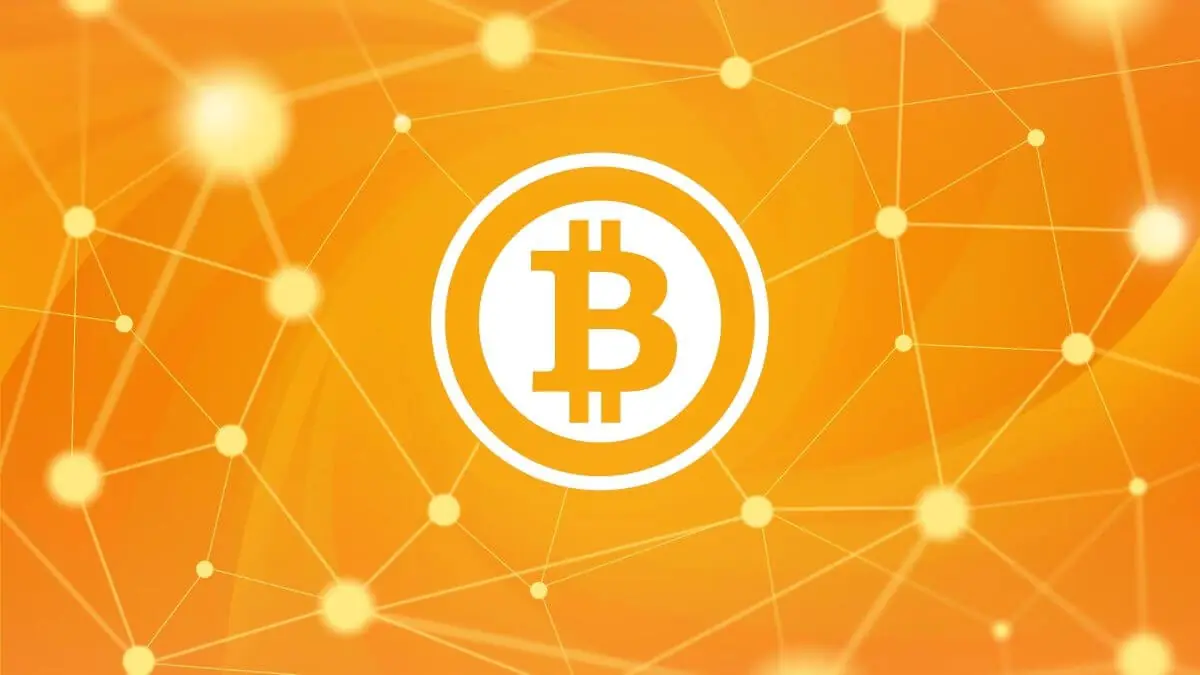
Bitcoin is the first blockchain platform. Bitcoin introduced the first fully decentralized digital currency. Over time it became obvious that it is extremely secure and stable. That was the start of a totally new revolution. Bitcoin became very popular since its introduction in 2008. Moreover, now it is the most successful digital currency in the world with billions of dollars invested in it. It is built on decades of research in the field of cryptography, digital cash, and distributed computing.
Ethereum
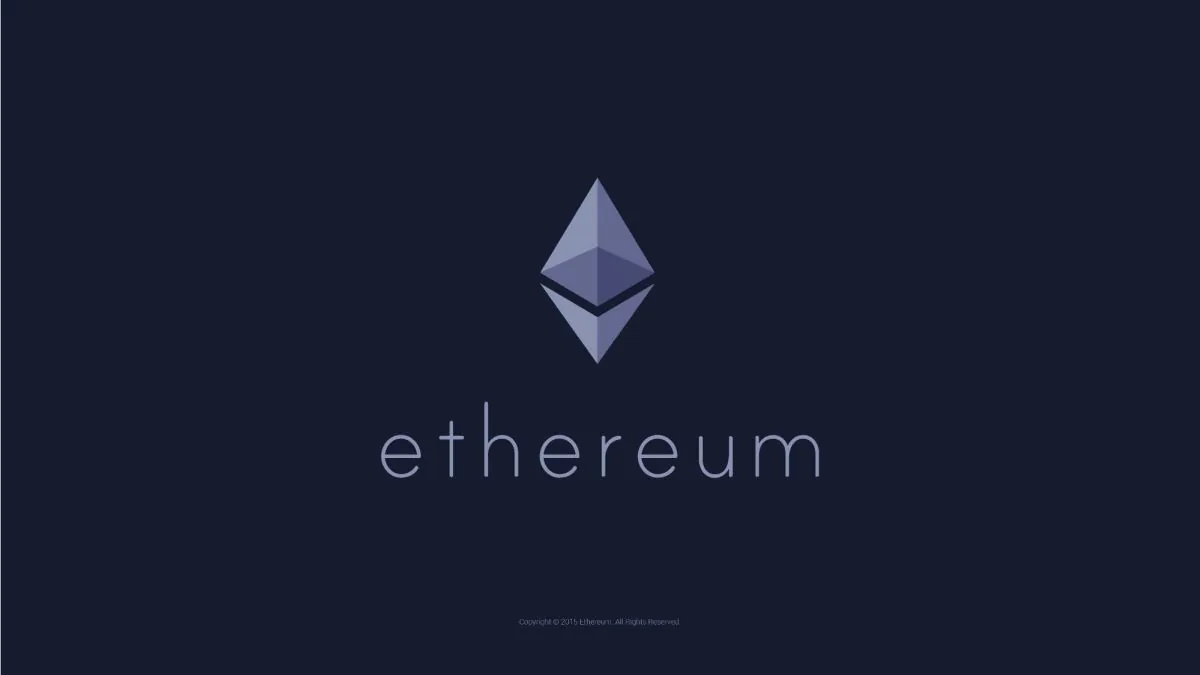
Vitalik Buterin has founded Ethereum in November 2013. The key idea is the development of a Turing-complete language that allows the development of arbitrary programs (smart contracts) for blockchain and decentralized applications. This is in contrast to Bitcoin, where the scripting language is very limited and allows basic and necessary operations only.
Step 4. Choose the Most Promising Sphere
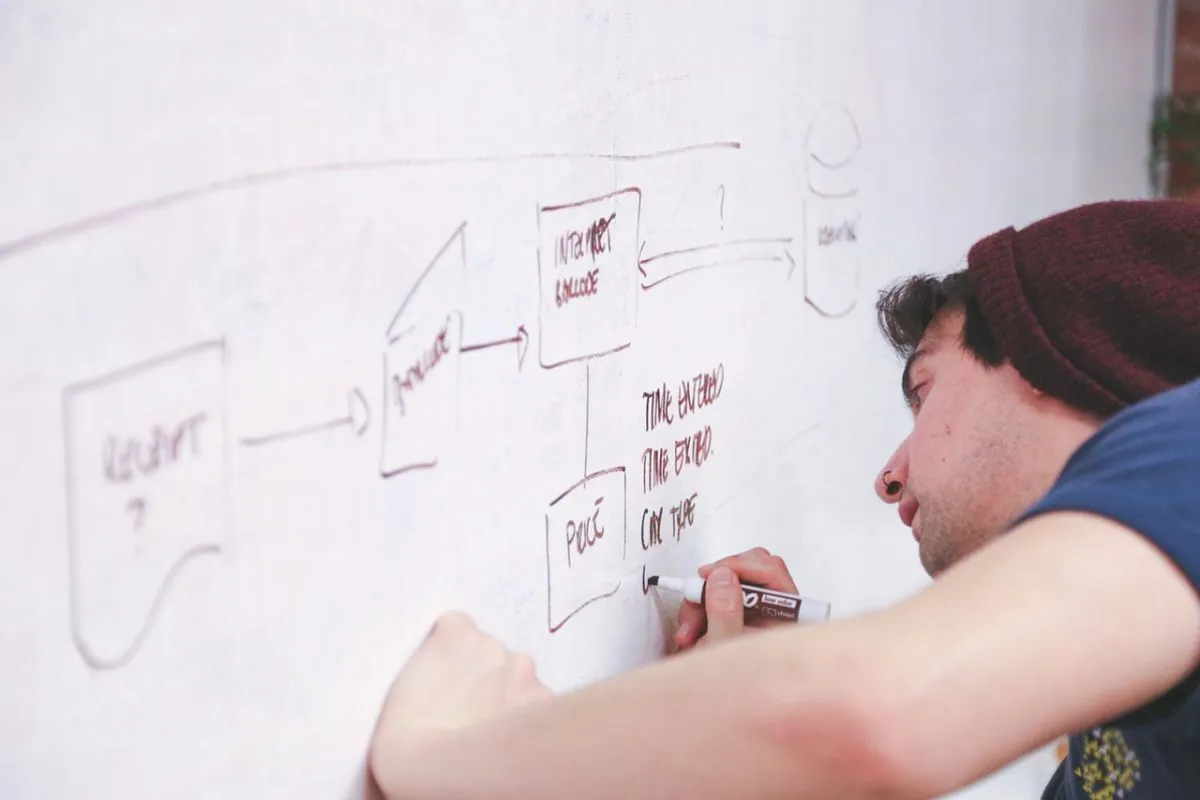
There is an opinion that blockchain can revolutionize every sphere in our life.
That’s impressive, but how? Below there is a big list of spheres that can benefit from this technology. Let’s take a look at it!
Digital currencies were the first-ever application of blockchain technology, arguably without realizing its true potential. The real benefits of blockchain were realized with its possible application in many different industries. Since then a number of use cases of blockchain technology in different industries have been proposed including but not limited to finance, the Internet of Things, digital rights management, government, ecology, transport, and law.
Internet of Things
The Internet of Things or IoT for short has recently gained much traction due to its potential for transforming business applications and everyday life. IoT can be defined as a network of computationally intelligent physical objects that are capable of connecting to the Internet, sensing real-world events or environments, reacting to those events, collecting relevant data, and communicating it over the Internet. This simple definition has huge implications and has led to exciting concepts, such as wearables, smart homes, smart grids, smart connected cars, and smart cities, that are all based on this basic concept of an IoT device. Blockchain is beginning to play a major part in the Internet of Things by enhancing security, enabling inclusion of low-value devices to be increasingly viable and making managing a device easier for decades to come.
For example, with blockchain the IoT-connected package location and temperature can be updated and traced when it moves along multiple distribution points. It helps all parties to share information and status of the package during its delivery to ensure the terms of a contract are met.
There are 3 major advantages:
Build trust — between all parties engaged in a transaction. Person A may not know device B. But the records of transactions and data stored on blockchain build trust between parties.
Reduce costs — participants can reduce monetary and time commitment costs because this removes the middleman from the process. Transactions are now done on a peer to peer basis, removing most legal or contractual costs.
Accelerate transactions — elevates the number of transactions, because the middleman is removed from the process. Smart contracts allow reducing the time needed for completing legal or contractual commitments.
Transport
Don’t forget about transport issues. This new technology will allow car owners to pay on-the-go for electric charging, parking fees, highway tolls, and receive car-sharing fees. Another possible future use would be the ability to integrate with intelligent power supply systems. This can help to control the vehicle’s charging process depending on the renewable energy present in the vehicle’s system at any point in time. Guess what? We are making an impact on this sphere! Interested? Read further!
Government
There are various applications of blockchain being researched currently that can support government functions and take the current model of e-government to the next level. There are some already known functions like e-voting, homeland security (border control), and electronic IDs (citizen ID cards). Let’s just see how some countries use blockchain in this sphere.
For example, Estonia is considered to be a leading nation in the adoption of blockchain technology. Estonia citizens and e-residents can access to various public services with a cryptographically secure digital ID card that is powered by blockchain infrastructure on the backend. Citizens can verify the records that government databases have on them and control who has access to them thanks to blockchain platform. Not so long ago, Nasdaq successfully completed a trial in Estonia and as a result, company shareholders can use a blockchain voting system.
Estonia is also adopting blockchain technology in the health sphere. There are 1 million health records that need to be secure. With blockchain every update and access to healthcare records are registered. It prevents medical fraud and makes it impossible for hackers to hide their trail. Thanks to real-time alerts to attacks that blockchain provides, the government can respond to incidents immediately before large-scale damages occur.
Health
The health industry has been identified as another major industry that can benefit by adapting blockchain technology. In healthcare, major issues such as privacy compromises, data breaches, high costs, and fraud can arise from a lack of interoperability, overly complex processes, transparency, auditability, and control. Another burning issue is; especially in developing countries, this is a major cause of concern.
With the adaptability of blockchain in the health sector, several benefits can be realized, ranging from cost saving, increased trust, faster processing of claims, high availability, no operational errors due to complexity in the operational procedures, and preventing the distribution of counterfeit medications.
For example, drug traceability. When a drug is produced, a hash is generated that contains all the relevant information about the product. Each time the drug moves from an entity to another (for example, there is a chain can be formed: manufacturer — distributor — pharmacist — patient), the information is stored on the blockchain, making it easy to track the drug.
Finance
Blockchain has many applications in the finance industry. Major banks and financial organizations are researching to find ways to adapt blockchain technology especially due to its highly-desired potential to save costs.
However, developers have already come up with solutions to protect the owners of private keys and blockchain assets. For instance, all parties within a blockchain could agree that a majority of the parties should sign before a transaction is agreed upon. This will prevent hackers from changing ownership by simply stealing a single key. Such multi-signature transactions can be programmed directly into the asset trading applications running on the blockchain.
Insurance
In the insurance industry, blockchain technology can help to stop fraudulent claims, increase the speed of claim processing, and enable transparency. Imagine a shared ledger between all insurers that can provide a quick and efficient mechanism for handling inter-company claims. Also with the convergence of IoT and blockchain, an ecosystem of smart devices can be imagined where all these things are able to negotiate and manage their own insurance policies controlled by smart contracts on the blockchain.
Media
Key issues in the media industry revolve around content distribution, rights management, and royalty payments to artists. For example, digital music can be copied many times without any restriction and any attempts to apply copy protection have been hacked in some way or other. There is no control over the distribution of the content that a musician or songwriter produces; it can be copied as many times as needed without any restriction and consequently has an impact on the royalty payments. Also, payments are not always guaranteed and are based on traditional airtime figures.
All these issues revolving around copy protection and royalty payments can be resolved by connecting consumers, artists, and all players in the industry, allowing transparency and control over the process. Blockchain can provide a network where digital music is cryptographically guaranteed to be owned only by the consumers who pay for it. This payment mechanism is controlled by a smart contract instead of a centralized media agency or authority. The payments will be automatically made based on the logic embedded within the smart contract and number…
Step 5. Review the Stages of Development

Many ask how to create blockchain applications. We won’t place all the code here — who would like that? In case you’re interested, rest assured to contact us and will write a detailed guide with code samples. For now, briefly about stages.
#1. Installation and Setup
There are lots of different packages that can make blockchain and smart contract concepts more usable and apply them to your project. For example, Eris.
#2. Granting Access
At this stage, you can create some keys to allow particular users access to the service and application.
#3. Creating a Blockchain
Here you can instantiate a particular blockchain, providing the “genesis” state of the blockchain.
#4. Contracts
Now you can create a contract that sets a value and then gets it back again.
#5. Making an Application
Now it’s time to write some code that interacts with the blockchain and performs actions upon it.
It may seem complex. But unless you encountered any problems, these steps shouldn’t actually take too long and then you’ll be ready to start using a blockchain in your applications.
A little bit about our blockchain project…
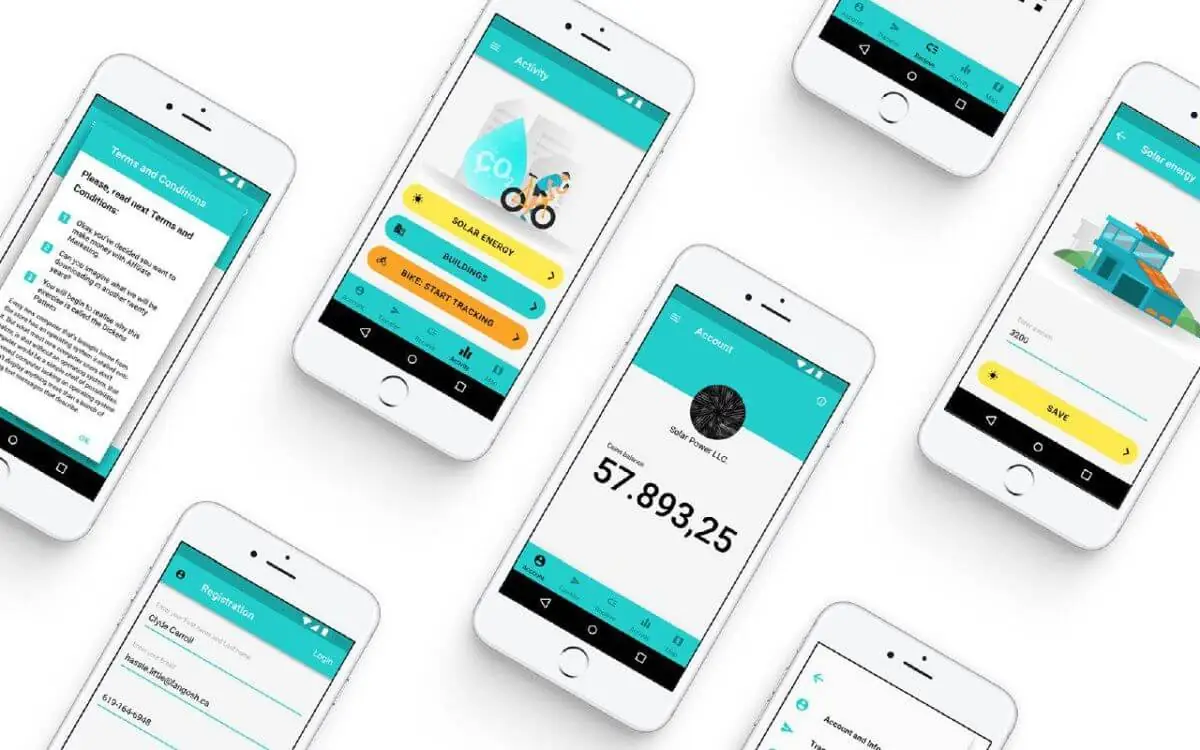
So we have got through those stages and here’s a little story about our blockchain project.
A client encountered us with an idea to contribute to ecology and green technologies using blockchain. Of course, we were captured by this idea, as it resolves problems in ecology and transportation. Plus, it’s a very popular and innovative theme nowadays. The idea is to give people some reward for the distance that they cover using electric cars, bicycles, and their legs. The reward can be different. For example, a cup of coffee at a gas station.
Step 6. Acknowledge the Benefits of Blockchain
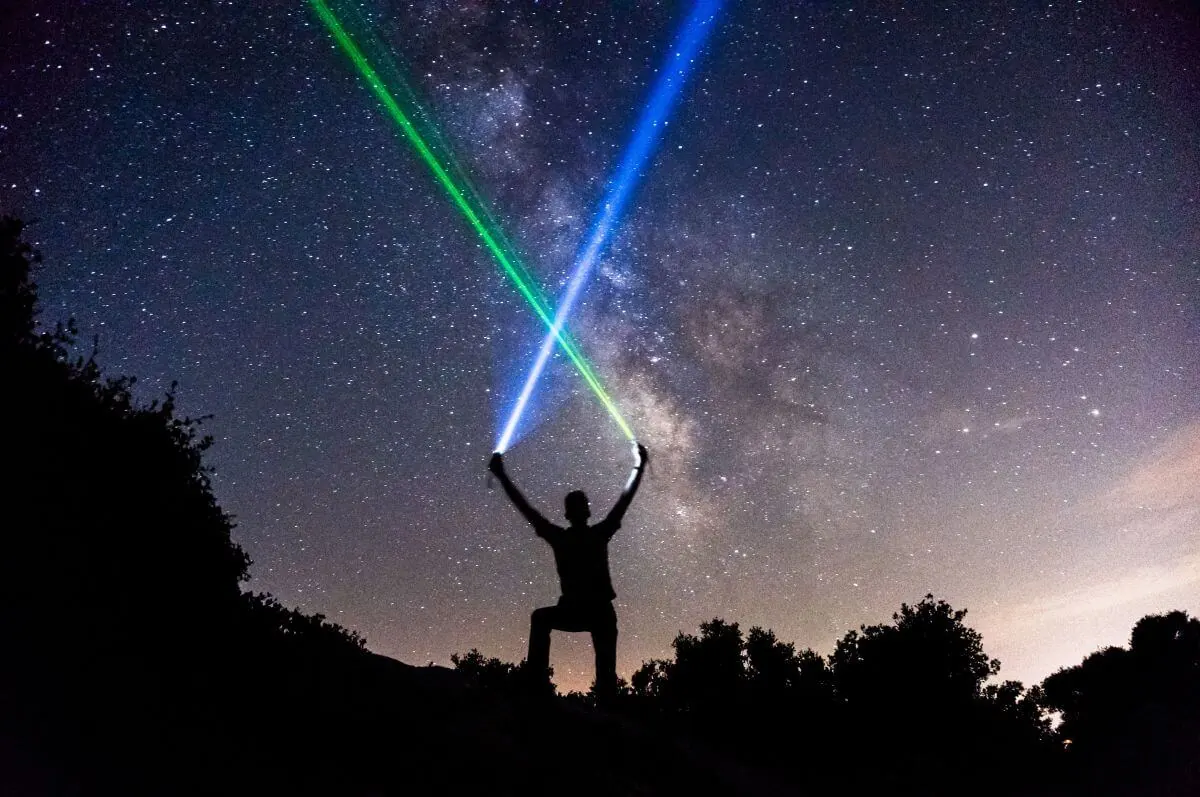
The thought leaders of the world in the blockchain sphere offer numerous benefits of blockchain technology. That’s why we had to mention the top 8 benefits that are so much on all our minds.
Decentralization
This is a core concept and benefit of blockchain. There is no need for a trusted third party or intermediary to validate transactions; instead, a consensus mechanism is used to agree on the validity of transactions.
Transparency and trust
As blockchains are shared and everyone can see what is on the blockchain, this allows the system to be transparent and as a result, trust is established. This is more relevant in scenarios such as the disbursement of funds or benefits where personal discretion should be restricted.
Immutability
Once the data has been written into the blockchain, it is extremely difficult to change it back. It is not truly immutable but, due to the fact that changing data is extremely difficult and almost impossible, this is seen as a benefit to maintaining an immutable ledger of transactions.
High availability
As the system is based on thousands of nodes in a peer-to-peer network, and the data is replicated and updated on each and every node, the system becomes highly available. Even if nodes leave the network or become inaccessible, the network as a whole continues to work, thus making it highly available.
Highly secure
All transactions on a blockchain are cryptographically secured and provide integrity.
Simplification of current paradigms
The current model in many industries such as finance or health is rather disorganized, wherein multiple entities maintain their own databases and data sharing can become very difficult due to the disparate nature of the systems. But as a blockchain can serve as a single shared ledger among interested parties, this can result in simplifying this model by reducing the complexity of managing the separate systems maintained by each entity.
Faster dealings
In the financial industry, especially in post-trade settlement functions, blockchain can play a vital role by allowing the quicker settlement of trades as it does not require a lengthy process of verification, reconciliation, and clearance because a single version of agreed-upon data is already available on a shared ledger between financial organizations.
Cost saving
As no third party or clearing houses are required in the blockchain model, this can massively eliminate overhead costs in the form of fees that are paid to clearing houses or trusted third parties.
Step 7. Find Skilled Blockchain Developers

Now you know a lot about blockchain, so what’s left is to actually create an app with this technology. And at this point, there is a problem. Talented blockchain developers are a little like diamonds: they’re hard to find and expensive to get. No worries, every problem has a solution. You think this step is small and not important? In opposite, we have a huge material for you to learn. Interested? Come see our next detailed article on how to find great blockchain developers.
Conclusion
Blockchain technology is fascinating in many ways, as it can actually improve lots of spheres. There is so much unknown about it. But still, it’s so amazing! We believe it can change our world to the better. What’s left is just to put it into practice by creating awesome blockchain applications.
So let’s change the world together!

